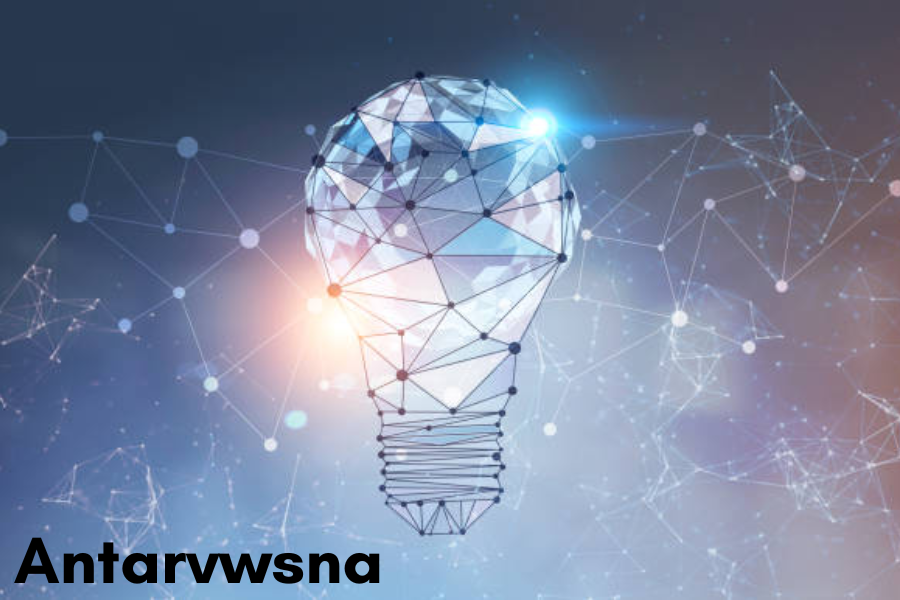
Antarvwsna
Antarvwsna encapsulates the timeless journey of dealing with inner turmoil to achieve greater self-awareness, balance, and personal development. This profound concept delves into the intricacies of moral challenges, emotional conflicts, and the quest for authenticity. Rooted in various cultural and psychological teachings, Antarvwsna continues to resonate with people striving for harmony between their inner selves and the external world.
The Core Meaning of Antarvwsna
At its core, Antarvwsna represents the internal battle individuals face when their values, desires, and obligations clash. This conflict often arises from the tension between societal expectations and personal aspirations. Far from being just an obstacle, it acts as a mirror that highlights areas of life requiring growth. It urges individuals to examine their beliefs and resolve the conflicting forces within their minds and hearts.
The Ancient Roots of Antarvwsna
The origins of Antarvwsna stretch back to ancient philosophical and spiritual traditions. Early texts, from Eastern scriptures to Western philosophical works, explore themes of inner conflict and the journey toward enlightenment. These writings emphasize that confronting Antarvwsna is essential for achieving self-realization and understanding the deeper truths of existence. Across cultures, this concept has evolved as a guiding principle for both personal and spiritual growth.
Symbolism and Artistic Representations of Antarvwsna
Antarvwsna is often symbolized as an internal storm, representing the chaos caused by unresolved emotions and clashing thoughts. In literature, it may appear as a crossroads, a place where characters must make pivotal decisions that alter their lives. These symbolic depictions highlight the transformative power of confronting internal struggles. In art and literature, Antarvwsna is often portrayed as a journey through darkness toward light, symbolizing clarity and resolution.
Cultural and Spiritual Perspectives on Antarvwsna
In various cultures, Antarvwsna is seen as a rite of passage, an essential stage in the journey of self-discovery. It is a central theme in spiritual teachings, where overcoming internal struggles is viewed as a crucial step toward enlightenment. Practices such as meditation and introspection are commonly encouraged to address Antarvwsna, emphasizing the importance of integrating one’s desires and values to live a balanced and harmonious life.
The Psychological View of Antarvwsna
From a psychological standpoint, Antarvwsna aligns with the concept of cognitive dissonance, where individuals feel discomfort due to holding contradictory beliefs or values. By addressing this dissonance through introspection and purposeful action, individuals can achieve better emotional resilience and mental clarity. Modern psychology recognizes the importance of Antarvwsna as a crucial aspect of personal development, playing a significant role in emotional intelligence and self-awareness. Therapists often recommend mindfulness techniques to help individuals work through these inner conflicts.
Antarvwsna’s Influence on Ethical Decision-Making
Ethical dilemmas often stir Antarvwsna, as people face choices that challenge their values and priorities. For example, decisions weighing personal gain against the greater good or loyalty versus truth can create internal friction. Antarvwsna pushes individuals to evaluate their moral compass and make choices that reflect their deepest values, fostering integrity and a heightened ethical consciousness.
How Antarvwsna Shapes Personal Identity
The process of resolving Antarvwsna is deeply intertwined with the development of personal identity. Internal conflicts often prompt individuals to question their motivations, desires, and values. By confronting and working through these conflicts, individuals gain greater clarity about who they are and what they stand for. Antarvwsna thus becomes a crucible for personal growth, resulting in a more authentic and self-assured sense of identity.
Antarvwsna Across Cultures: A Universal Experience
Although the term Antarvwsna may not be present in every culture, the essence of this concept is reflected in many cultural traditions. In Eastern philosophies, the struggle between desire and detachment is a common theme, while Western traditions often emphasize moral and ethical challenges. These diverse interpretations highlight the universal nature of Antarvwsna, regardless of cultural variations in how it is expressed or resolved.
Antarvwsna’s Impact on Relationships
Antarvwsna doesn’t only affect the individual; it often spills over into relationships. Inner conflicts can manifest as communication breakdowns or emotional distance between people. For instance, unresolved struggles with self-worth can hinder intimacy, while clashing goals may lead to misunderstandings. Addressing Antarvwsna enables individuals to cultivate healthier, more genuine connections with others.
Antarvwsna in Leadership: Navigating Internal Struggles
Leadership often requires navigating substantial internal conflicts, such as balancing organizational goals with ethical considerations. Leaders who confront and reflect on their Antarvwsna develop greater empathy and resilience. This self-awareness improves their ability to inspire and guide others, creating a positive ripple effect throughout their teams and communities.
Tools to Navigate Antarvwsna
- Mindful Meditation: Quiet the mind and gain insights into inner conflicts through focused meditation.
- Journaling: Writing down thoughts and emotions can help uncover patterns and clarify conflicting desires.
- Creative Expression: Engage in art, music, or storytelling to process and explore the emotions tied to Antarvwsna.
- Support Networks: Seek guidance from mentors, therapists, or trusted friends to gain fresh perspectives on inner struggles.
Antarvwsna in Modern Psychology
Modern psychological practices offer valuable tools for addressing Antarvwsna, including mindfulness-based therapies and cognitive-behavioral strategies. These methods encourage individuals to examine their thoughts and behaviors, helping them resolve conflicts and achieve greater self-coherence. Antarvwsna is increasingly recognized as a transformative aspect of mental health and emotional growth.
Antarvwsna in Popular Culture
The theme of Antarvwsna is frequently explored in stories across various media. Characters in novels, films, and TV shows often grapple with moral and emotional dilemmas, reflecting the universal nature of internal conflict. These portrayals resonate with audiences, offering relatable insights into the complexities of human nature.
The Importance of Antarvwsna in Today’s Fast-Paced World
In an era marked by rapid change and increasing pressure, Antarvwsna serves as a critical reminder to pause and reflect. The demands of modern life often lead to a disconnection from oneself, making the resolution of inner struggles more vital than ever. Antarvwsna encourages individuals to prioritize self-awareness, authenticity, and ethical decision-making in both their personal and professional lives.
The Transformative Power of Antarvwsna
Antarvwsna is not merely a challenge to overcome but an opportunity for profound transformation. Confronting and resolving inner struggles allows individuals to unlock their full potential and lead more authentic lives. It fosters resilience, emotional intelligence, and a deep sense of fulfillment, turning moments of conflict into significant milestones of growth.
Key Facts
- Definition: Antarvwsna represents the internal struggles individuals face when their values, desires, and responsibilities conflict. It involves navigating emotional dilemmas, moral conflicts, and the quest for authenticity and self-awareness.
- Cultural and Philosophical Roots: Antarvwsna has deep origins in various ancient spiritual and philosophical traditions. It is often discussed in both Eastern and Western teachings, where overcoming internal conflict is seen as essential for personal growth and enlightenment.
- Symbolism: Antarvwsna is often symbolized as a storm or chaos within, representing unresolved emotions and thoughts. It can also appear as a crossroads, indicating life-altering decisions that reflect the inner conflict one faces.
- Universal Theme: Though the term Antarvwsna may not exist universally, the concept of internal conflict and moral struggle is present in many cultures. Whether expressed as desire versus detachment in Eastern philosophies or moral dilemmas in Western traditions, Antarvwsna is a human experience that transcends cultural boundaries.
- Psychological Parallel: In psychology, Antarvwsna parallels the concept of cognitive dissonance, where an individual experiences discomfort from holding conflicting beliefs or values. Resolving this dissonance is crucial for emotional and mental growth.
- Ethical Decision-Making: Antarvwsna plays a significant role in ethical decision-making, often surfacing in dilemmas where individuals must choose between competing values, such as personal benefit versus the collective good or truth versus loyalty.
- Identity Formation: The process of resolving Antarvwsna is tied to personal identity formation. Internal conflicts help individuals question their motivations and desires, ultimately leading to a clearer sense of who they are and what they stand for.
- Impact on Relationships: Antarvwsna affects relationships by manifesting as emotional distance, communication barriers, or unresolved personal conflicts. Addressing internal struggles helps individuals build healthier, more authentic connections with others.
- Leadership and Antarvwsna: Leaders often face Antarvwsna when balancing ethical considerations with organizational goals. Self-reflection and addressing internal conflicts help leaders develop greater empathy and resilience, enhancing their leadership effectiveness.
- Tools for Addressing Antarvwsna: Techniques such as mindfulness meditation, journaling, creative expression, and seeking support from others are key tools for navigating Antarvwsna and resolving inner conflicts.
- Relevance in Modern Life: In today’s fast-paced world, Antarvwsna serves as a reminder to pause, reflect, and address internal struggles. In a time of increasing pressure and demands, resolving Antarvwsna is crucial for maintaining self-awareness, authenticity, and ethical living.
- Transformative Potential: Confronting and resolving Antarvwsna offers the opportunity for profound personal transformation. It fosters resilience, emotional intelligence, and fulfillment, turning conflict into a powerful tool for growth.
Conclusion: Embracing the Path of Antarvwsna
Antarvwsna encapsulates the essence of human growth and transformation. Whether from cultural, spiritual, or psychological viewpoints, it underscores the significance of introspection and self-discovery. By embracing this journey, individuals can transform inner conflicts into stepping stones toward a more meaningful and balanced life.
FAQs
1. What is Antarvwsna?
Antarvwsna refers to the internal struggles individuals face when their values, desires, and responsibilities come into conflict. It involves navigating moral dilemmas, emotional turmoil, and the pursuit of authenticity to achieve self-awareness and personal growth.
2. Where does the concept of Antarvwsna originate from?
Antarvwsna has roots in ancient philosophical and spiritual traditions. It is explored in both Eastern and Western teachings, where overcoming inner conflicts is seen as a vital step toward self-realization and enlightenment.
3. How is Antarvwsna symbolized?
Antarvwsna is often depicted as an internal storm or a crossroads in literature and art. The storm symbolizes the chaos of unresolved emotions, while the crossroads represent life-altering decisions that emerge from internal conflict.
4. Is Antarvwsna a universal concept?
While the term Antarvwsna may not exist across all cultures, its essence is universally understood. Many cultures reflect this concept, whether through the struggle between desire and detachment in Eastern philosophies or the moral dilemmas in Western traditions.
5. How does Antarvwsna relate to psychology?
In psychology, Antarvwsna is similar to cognitive dissonance, where individuals feel discomfort from holding contradictory beliefs or values. Addressing this dissonance through self-reflection helps individuals achieve mental clarity and emotional resilience.
6. How does Antarvwsna influence ethical decision-making?
Ethical dilemmas often trigger Antarvwsna, especially when individuals face decisions that challenge their core values, such as personal gain versus the greater good. Resolving Antarvwsna helps individuals make ethical decisions aligned with their beliefs.
7. What role does Antarvwsna play in identity formation?
Resolving Antarvwsna is essential for personal identity development. It encourages individuals to examine their motivations, desires, and values, helping them clarify who they are and what they stand for.
8. How does Antarvwsna affect relationships?
Antarvwsna can impact relationships by causing emotional distance, communication barriers, or misunderstandings. Addressing internal conflicts allows individuals to cultivate healthier and more authentic relationships.
9. How is Antarvwsna relevant to leadership?
Leaders often encounter Antarvwsna when they must balance ethical considerations with organizational goals. By reflecting on their internal conflicts, leaders can develop empathy and resilience, which enhances their ability to guide and inspire others.
10. What tools can help address Antarvwsna?
Tools for navigating Antarvwsna include mindfulness meditation, journaling, creative expression, and seeking support from trusted mentors or therapists. These practices help individuals gain clarity and resolve their inner conflicts.
11. Why is Antarvwsna important in today’s world?
In a fast-paced, high-pressure society, Antarvwsna is crucial for maintaining self-awareness and authenticity. Resolving inner conflicts ensures individuals stay true to their values and make ethical decisions, both personally and professionally.
12. How can Antarvwsna lead to personal transformation?
Confronting and resolving Antarvwsna offers the opportunity for profound personal transformation. It fosters resilience, emotional intelligence, and fulfillment, turning moments of inner conflict into milestones of growth.
Discover the latest news and updates on The Blog Verge





